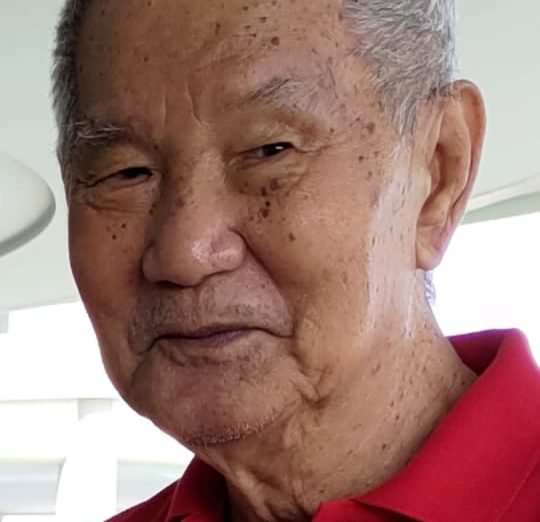THE man who suffered mental illness 56 years ago but unwittingly played a pivotal role in the setting up of D’Home Mental Association had passed away.
Ronnie Lee Kim Hock, 81, breathed his last in Penang at 5.50pm on Nov 24, according to his brother and founder of D’Home, Datuk Seri Leslie Lee, 70.
Ronnie was cremated on Saturday (Nov 26) and his ashes were interred at the Western Road Christian Cemetery the following day.
“Had it not been for Ronnie, I might not have established D’Home Mental Association which has helped countless people with mental illness since its formation in 2004.
“As a 14-year-old teen, I saw how he suffered from mental illness and saw his life destroyed which could be saved with correct medications, family support, professional counselling and support from mental health NGOs like D’Home.
“Thereafter, I purposed to care for him as well to help other people in our community,” Leslie told Buletin Mutiara yesterday.
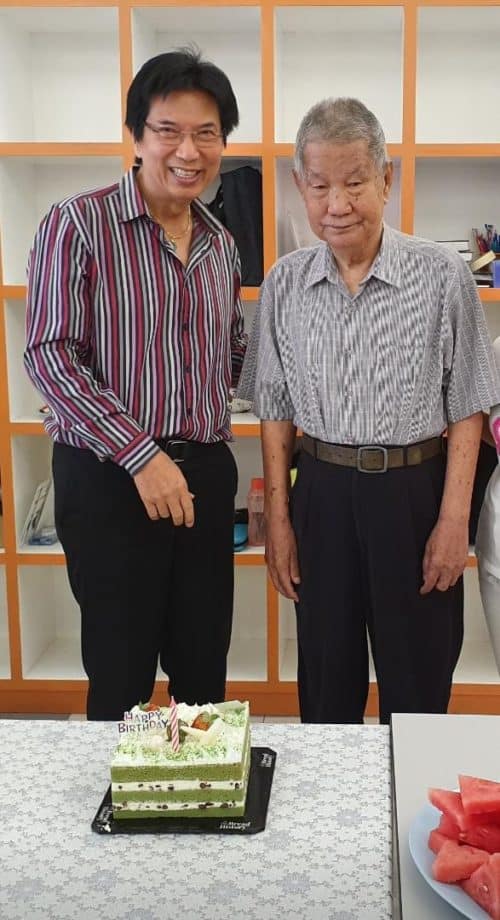
Coming from a poor family of 10 siblings, Leslie said things started to brighten up for the family when Ronnie began working as a postman in Sungai Petani, Kedah.
He contributed 100% of his income to his poor father, who was then unable to make ends meet. Being a hardworking person, Ronnie also took on other jobs during his off days and after hours as a postman.
But unfortunately, mental illness struck him at the age of 24 in 1966 and subsequently to make matters worse, he was medically boarded out without pay although Postal Department was also under the Federal Government then.
“Seeing his suffering as a teenage brother hurts deeply, especially his cries and pleadings to my parents not to send him to the psychiatric hospital when the police were at the entrance of our wooden house during his relapse.
“‘The staff at the psychiatric ward abused me, hit me and treated me like an animal’ were his desperate crying pleas but to no avail. My parents had no choice but to admit him for psychiatric treatment.
“Ronnie’s cries were outside whereas my cries, sadness and sorrows were inside,” Leslie, the youngest of the siblings, wrote on his FB.
He added that thereafter, whichever friends Ronnie had, started to taper off until there was no one who wanted to be associated with another person who is mentally unwell. This, he said, is understandable.
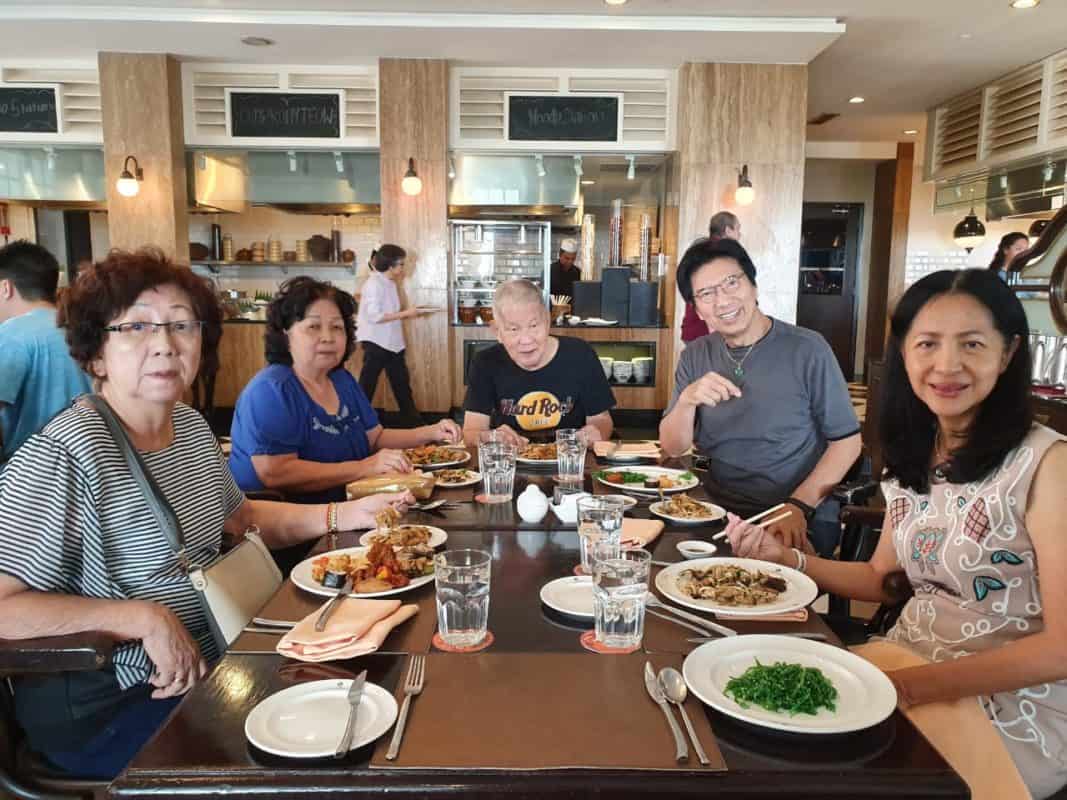
To add salt to injury, Leslie said unwarranted remarks like “ini orang gila, otak tak centre, tiga suku, crazy, mad, etc” were uttered within his hearing distance.
In fact, during these darkest moments, Leslie was also angry at God.
“When I was young, I said God was so unfair and unkind to us. We were so poor and yet God was so cruel for this to happen to Ronnie.
“Fast forward, I see this as a blessing in disguise from God. If this had not occurred, I am not sure whether I would have the aspiration to set up the D’Home Mental Health Association.
“Through Ronnie, God used him as a tool for me to set up D’Home with the support of professional psychiatrists, doctors, counsellors, community volunteers and others to help needy people with mental illness.
“Subsequently, when Ronnie was staying with me, he was well-treated and supported by psychiatrists and doctors from the psychiatric hospital in Penang and no further relapse occurred,” Leslie said.
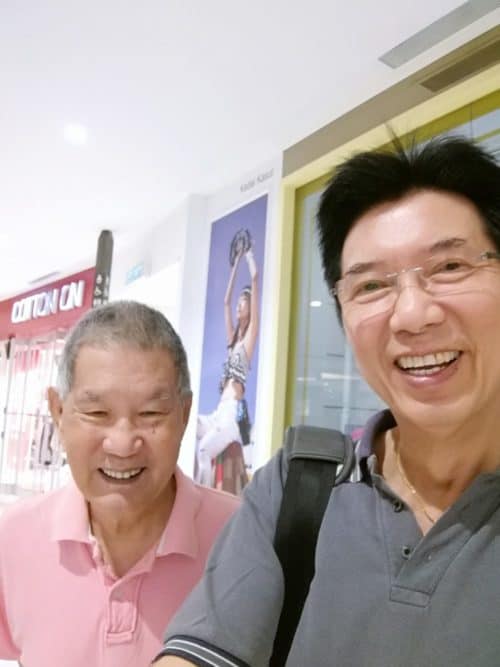
Leslie apologised to his father at his father’s deathbed for not being able to care for him and the family. His father passed away at the age of 59 in 1971.
Leslie then made a pledge to care for his mother, as well as a mentally challenged sister and Ronnie.
His mentally challenged sister later died at the age of 62 in 2006.
Although mental illness is often shrouded in taboo and stigma which hinders open communication and relationships, Leslie said a patient could recover and be a useful member of society again.
Statistically, he said one in every four people suffers some form of mental illness in their lives.
In the case of Ronnie, he said his parents did not have the knowledge and finally sought deities, sinseh, and bomoh for help but that ultimately worsened his condition.
“With the right doctor, right medication, right dosage, good family support and caring NGOs, like D’Home and others, a person with mental illness can be saved to lead a normal life and contribute productively to society.
“In the 60s’, when Ronnie was in the psychiatric ward, they passed electricity ‘ECT’ through his head without sedation. It was a torture for patients like him then and he was traumatised.
“Nowadays, we have more humane treatments for ECT,” Leslie said.
Electroconvulsive therapy (ECT) is a procedure done under general anaesthesia, in which small electric currents are passed through the brain, intentionally triggering a brief seizure.
ECT seems to cause changes in brain chemistry that can quickly reverse symptoms of certain mental health conditions.
“The first generation psychiatric drugs available after the Second World War are effective, but have side effects like hands/fingers trembling, salivating and legs shaking,” Leslie added.
Leslie recalled an unforgettable incident when Ronnie once fell into a drain while walking sleepily (under psychotic drugs sedation) in Jalan Tunku Abdul Rahman, and a passerby quickly called an ambulance.
“At the A&E (Accident & Emergency) Department, the medical staff found no IC in Ronnie’s possession but only a Penang Sports Club membership card. It was actually my membership card that Ronnie took.
“So, they thought the patient was Leslie and rang up my daughter-in-law, whom they know, to tell her that I was in the hospital.
“There were two or three other occasions when Ronnie fell unconscious when he went out with us. I believe that was because of psychotic drug overdosage. The side effects lowered his blood pressure to hypotension and when we halved the dosage, he never had that problem again,” Leslie said.
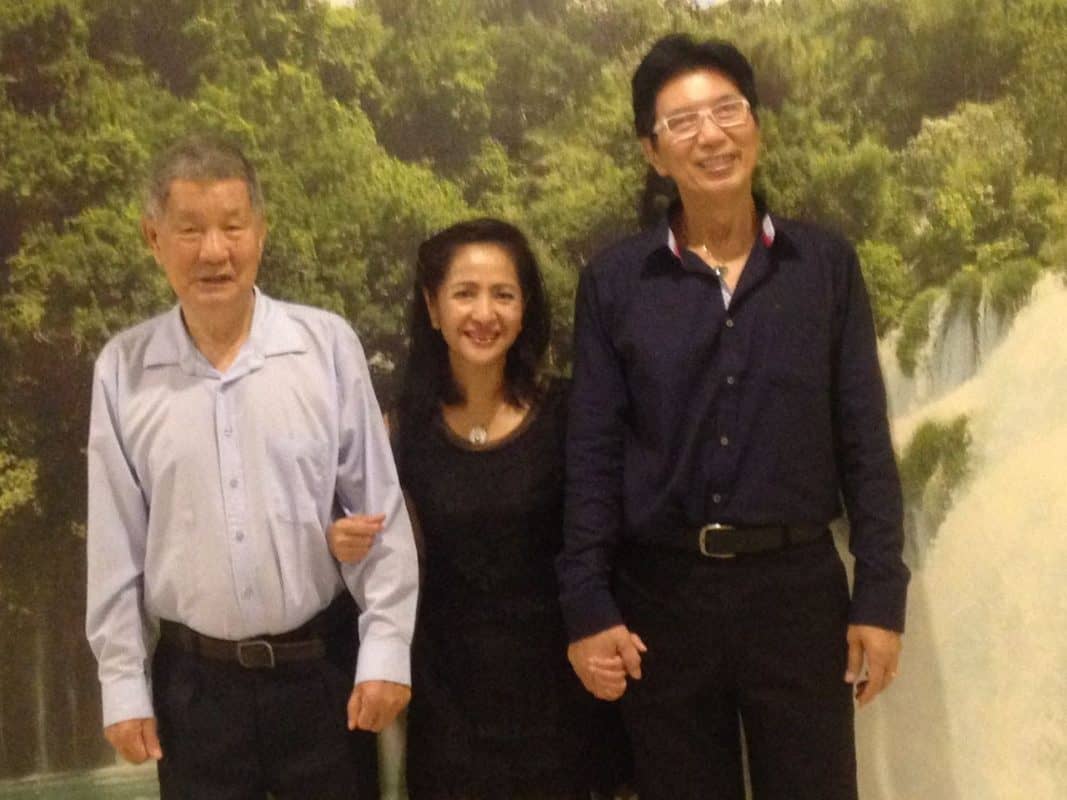
Caring for a mentally challenged person is no easy task. Leslie said sometimes siblings may agree to help to take care, but spouses or children may not agree.
It irked him when some of his siblings said he could help take care of Ronnie because he has the financial means.
“Money can’t solve everything. I’ve seen siblings from very poor families who are so dedicated and devoted to helping the mentally challenged.
“I am very thankful to my wife (Neoh Guan Eng) and three children for being very supportive of me.
“If they have not been supportive, there would have been a war at home.
“Ronnie was once sent to my sibling’s house when my wife and I went to Australia but after three days, his children complained about why their mother had brought such a troublesome and abnormal person into their home.
“Over 40 years, I have never uttered any issue over Ronnie. Mentally challenged people have their peculiarities because of their illness. We have to understand them, guide them, help them, tolerate them, manage them, accommodate them, support them and forgive them.
“The most important thing is to be willing to support and love them without conditions. Accept them and whatever mistakes, magnanimously forgive them. They are actually down in a pit struggling, crying for help. Lend them a helping hand to lift them up. Do not push them down further or they will be drowned.
“I’ve about 30 nieces and nephews. And I have told them that values, like gratitude, are always very important.
“I had encouraged them to take Ronnie out for a walk, for example to Botanic Gardens, a meal or a movie. It was Ronnie, their uncle, who gave his all to help their parents before. He suffered mental illness as a result of overworking.”
Besides being the president of the D’Home Mental Association, Leslie is also the president of the Penang Dementia Association. He is also the founder of the New Bob Group of companies and has taken a back seat to helping the needy which he describes as a ‘very satisfying, meaningful and fulfilling adventure.’
For the past 48 years, Leslie and his family had cared for Ronnie with unconditional love. In return, Ronnie had given them 48 memorable years that Leslie said they would cherish forever.
Story by K.H. Ong
Pix courtesy of Datuk Seri Leslie Lee

